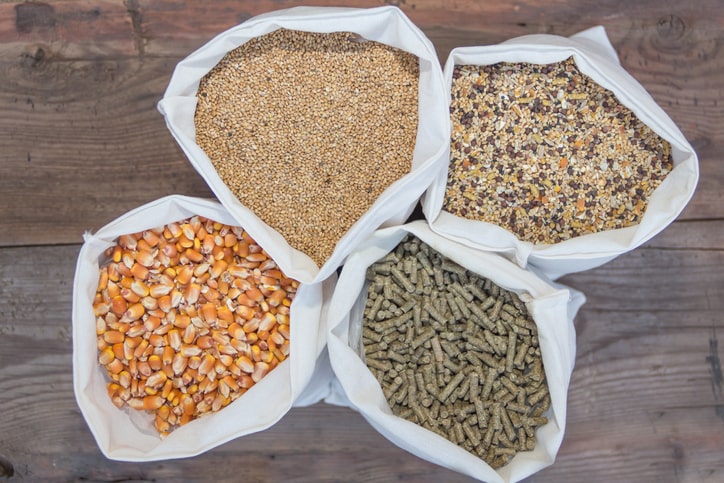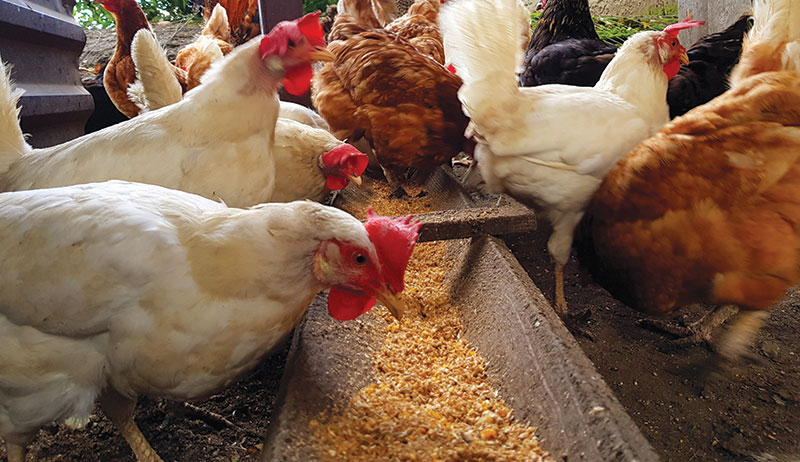When you notice your chicken suffering from a prolapse, it’s critical to know what to feed a chicken with a prolapse. This condition occurs when part of the chicken’s vent or cloaca tissue protrudes through the vent. It can be distressing, both for the bird and the owner. Proper nutrition is a key aspect of the treatment and management of this condition. In this article, we will delve into the dietary needs of chickens with prolapse and offer comprehensive guidelines to ensure their swift recovery and continual health.

What is a Prolapse in Chickens?
Before diving into the diet specifics, its important to understand what a prolapse is. A prolapse in chickens, also known as a vent prolapse, occurs when the hens oviduct, or cloaca, is pushed outside of the body, typically while laying an egg. This condition can be caused by several factors including diet, genetics, frequent egg laying, and overall health.

Symptoms and Causes
Symptoms of Prolapse
Recognizing the symptoms early is crucial for effective treatment. The main signs to look out for include:
- Visible tissue protruding from the vent
- Blood or broken egg residue around the vent
- Lethargy and reduced activity
- Excessive pecking from other chickens
Causes of Prolapse
The causes of prolapse can vary, but the most common factors include:
- Inadequate diet or nutrition
- Overweight or underweight condition
- Excessive egg laying or oversized eggs
- Genetic predisposition

Nutritional Requirements for a Chicken with a Prolapse
Proper nutrition plays a pivotal role in the recovery of a chicken from prolapse. Here are key nutritional elements to focus on:
High-Quality Protein
Ensure the chicken receives high-quality protein sources. Proteins are fundamental for tissue repair and overall health.
Calcium and Phosphorus
Calcium is crucial for the formation of strong eggshells, which can prevent further prolapse. A balance of calcium and phosphorus is essential.
Vitamin D
Vitamin D enhances the absorption of calcium and phosphorus, and is vital for maintaining a healthy skeletal structure.
Essential Amino Acids
Amino acids like methionine and lysine aid in tissue repair and egg production balance.

What to Feed a Chicken with a Prolapse
High-Protein Feed
Provide a high-protein feed specifically formulated for laying hens. This ensures they get the necessary nutrients for repair and strength.
Leafy Greens and Vegetables
Incorporate leafy greens and vegetables rich in vitamins and minerals. Kale, spinach, and carrots are excellent options.
Calcium Supplements
Offer calcium supplements if the feed lacks sufficient calcium. Crushed oyster shells are a highly recommended source.
Fresh Water
Ensure constant access to fresh water. Hydration is critical for overall health and recovery.
Additional Care Tips for Chickens with Prolapse
Isolation
Isolate the affected chicken to prevent pecking from other hens and reduce stress.
Medical Treatment
Consult a veterinarian promptly for proper medical treatment which may include cleaning and manually repositioning the prolapsed tissue.
Maintain a Clean Environment
A clean coop environment helps prevent infections and promotes faster healing.
Prevention of Prolapse in Chickens
Regular Health Checks
Conduct regular health checks to catch any issues early.
Balanced Diet
Maintain a balanced diet for all chickens to prevent nutritional deficiencies that could lead to prolapse.
Manage Egg Laying
Avoid over-stimulating egg production, as frequent egg laying can exacerbate the condition.
Provide Proper Roosting Areas
Ensure there are sufficient and adequately spaced roosting areas to reduce stress on the birds.
FAQs
Can prolapse be prevented in chickens?
Yes, by maintaining a balanced diet, preventing obesity, and avoiding excessive egg production, prolapse can often be prevented.
What foods should be avoided for chickens with prolapse?
Avoid low-quality feed, and excessive treats that are high in fat and low in nutrients.
Is surgery necessary for a chicken with a prolapse?
In severe cases, surgical intervention might be necessary, but many cases can be managed with proper nutrition and supportive care.
Further Reading
Check out other articles on chicken longevity, chicken breeds, jumbo egg layers, and more from Chicken Things! Additionally, refer to this chicken breed guide for comprehensive information on various breeds.
As an Amazon Associate, I earn from qualifying purchases.









